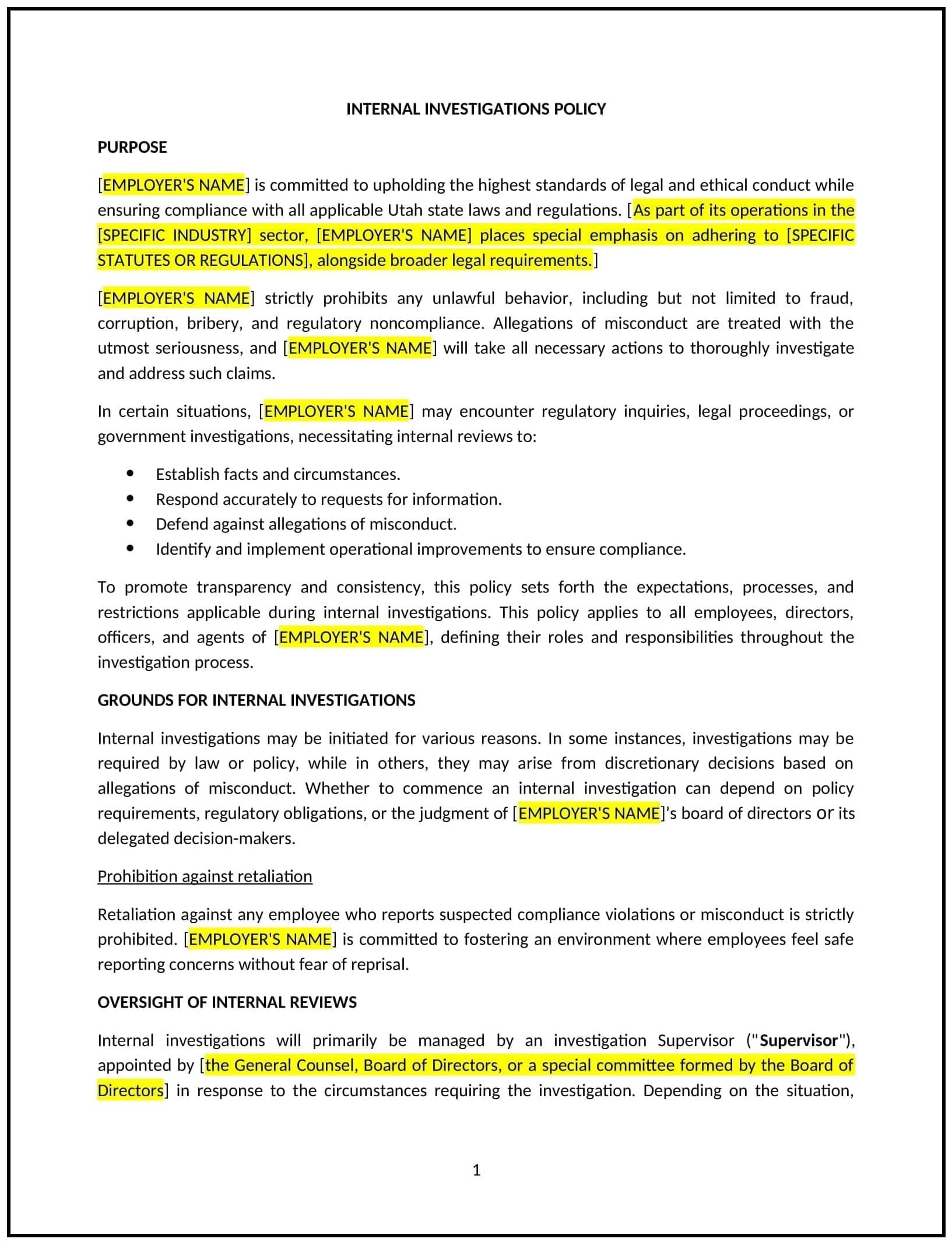Internal investigations policy (Utah): Free template
Got contracts to review? While you're here for policies, let Cobrief make contract review effortless—start your free review now.

Customize this template for free
Internal investigations policy (Utah)
This internal investigations policy is designed to help Utah businesses establish guidelines for conducting fair and thorough investigations into workplace issues, such as misconduct, harassment, or policy violations. It outlines procedures for initiating, conducting, and resolving investigations while protecting employee rights.
By adopting this policy, businesses can address workplace issues effectively, maintain transparency, and align with general best practices for internal investigations.
How to use this internal investigations policy (Utah)
- Define scope: Specify the types of issues that warrant an internal investigation, such as harassment, discrimination, or theft.
- Establish investigation procedures: Outline steps for initiating, conducting, and documenting investigations, including evidence collection and witness interviews.
- Assign responsibilities: Designate individuals or teams responsible for leading investigations, such as HR personnel or legal counsel.
- Ensure confidentiality: Protect the privacy of all parties involved in the investigation.
- Address retaliation: Prohibit retaliation against employees who participate in investigations in good faith.
- Train investigators: Educate investigators on conducting fair, impartial, and thorough investigations.
- Review and update: Assess the policy annually to ensure it aligns with evolving workplace needs and legal standards.
Benefits of using this internal investigations policy (Utah)
This policy offers several advantages for Utah businesses:
- Promotes fairness: Ensures workplace issues are addressed through impartial and thorough investigations.
- Maintains transparency: Demonstrates a commitment to resolving issues openly and responsibly.
- Reduces legal risks: Minimizes the potential for lawsuits or regulatory penalties related to mishandled investigations.
- Protects employee rights: Ensures confidentiality and prohibits retaliation against participants.
- Enhances trust: Builds employee confidence in the business’s ability to address workplace issues effectively.
Tips for using this internal investigations policy (Utah)
- Communicate the policy: Share the policy with employees and include it in the employee handbook.
- Provide training: Educate investigators on conducting fair, impartial, and thorough investigations.
- Monitor compliance: Regularly review investigation processes to ensure adherence to the policy.
- Address issues promptly: Take corrective action if investigations are mishandled or delayed.
- Update regularly: Assess the policy annually to ensure it aligns with evolving workplace needs and legal standards.